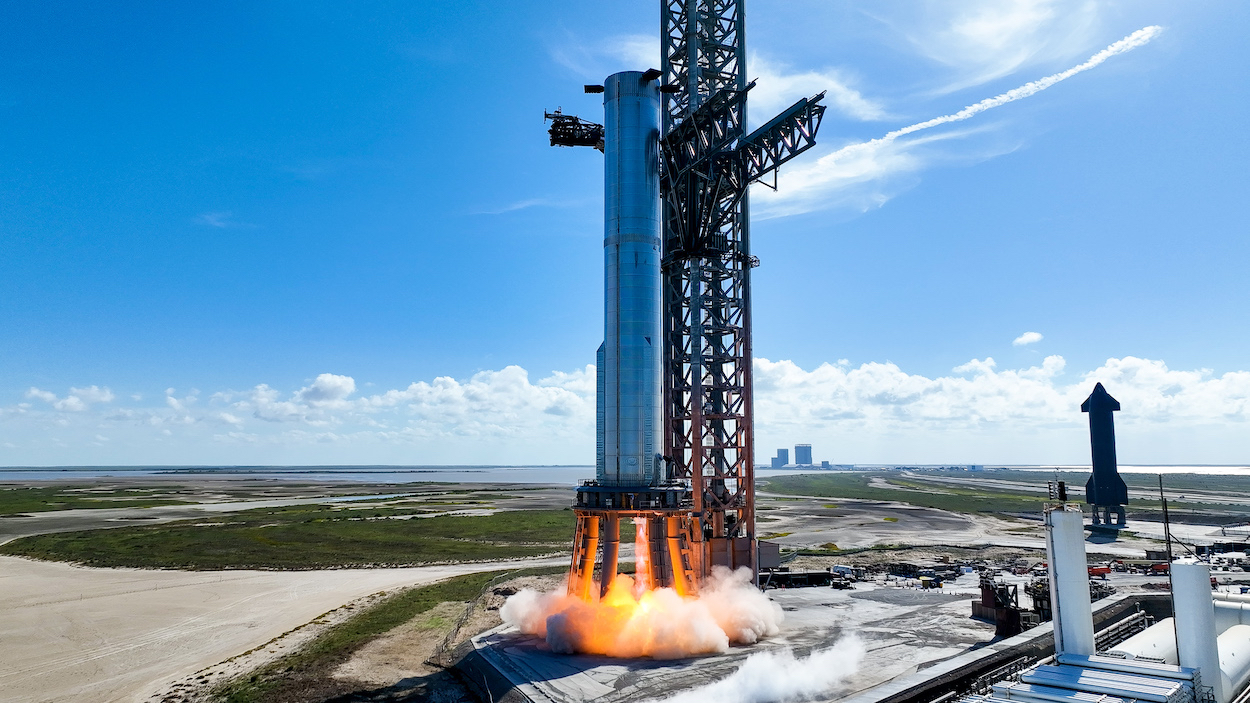
On Tuesday, SpaceX conducted two static fires at its Starbase site in South Texas. The spacecraft being tested, Ship 24 and Booster 7, are believed to be the first SpaceX will use to launch Starship’s Orbital Flight Test as soon as this year, if you believe Elon Musk.
Super Heavy Booster 7 comes to life post inspections
Booster 7 is the first Super Heavy booster, the first stage of a fully built Starship launch vehicle, to be equipped with a full array of Raptor 2 engines. SpaceX has been conducting several tests on the booster for over a month to get it ready to launch. However, this static fire marks Booster 7’s first time firing up one of its engines while mounted on Starbase’s orbital launch mount.
SpaceX moved the massive rocket stage from the High Bay to the company’s South Texas launch site overnight, beginning on August 5 and arriving in the early hours of the next day. Booster 7 spent a few weeks in the High Bay getting inspections as it suffered from a combustion event during a spin prime test. This test is meant to validate the plumbing by flowing a small amount of fuel through the engines. During the other week’s test, something on the ground sparked the gas, creating a minor explosion around the rocket’s base.
Tuesday’s static fire consisted of only one Raptor 2 engine. In total, Booster 7 carries 33 engines. Now that Booster 7 has passed this milestone, the question is will SpaceX gradually increase the number of engines static firing or go full in on a 33-engine static fire? Logically, it would make sense for SpaceX to conduct multiple static fires with a gradual increase of engines. However, this is SpaceX, and one comment from Musk could change everything.
Starship 24 roars to life with its own static fire
Stationed nearby Booster 7 was Ship 24, the Starship launcher’s upper stage and payload space. It also conducted a static fire of its Raptor engines shortly after Booster 7’s. Ship 24 is equipped with three sea-level Raptor engines and three vacuumed optimized engines. During this test, Ship 24 only lit up two engines for a short duration.
We’ve already seen plenty of testing on these vehicles, and we will likely see more as SpaceX continues to ready these two vehicles for launch. When that launch takes place, we don’t know, but activity has picked up a lot over the last few weeks with almost daily road closures. Once we understand what the FAA will require for the first orbital test flight, we will have a better grasp on when it could take place.
FTC: We use income earning auto affiliate links. More.




Comments